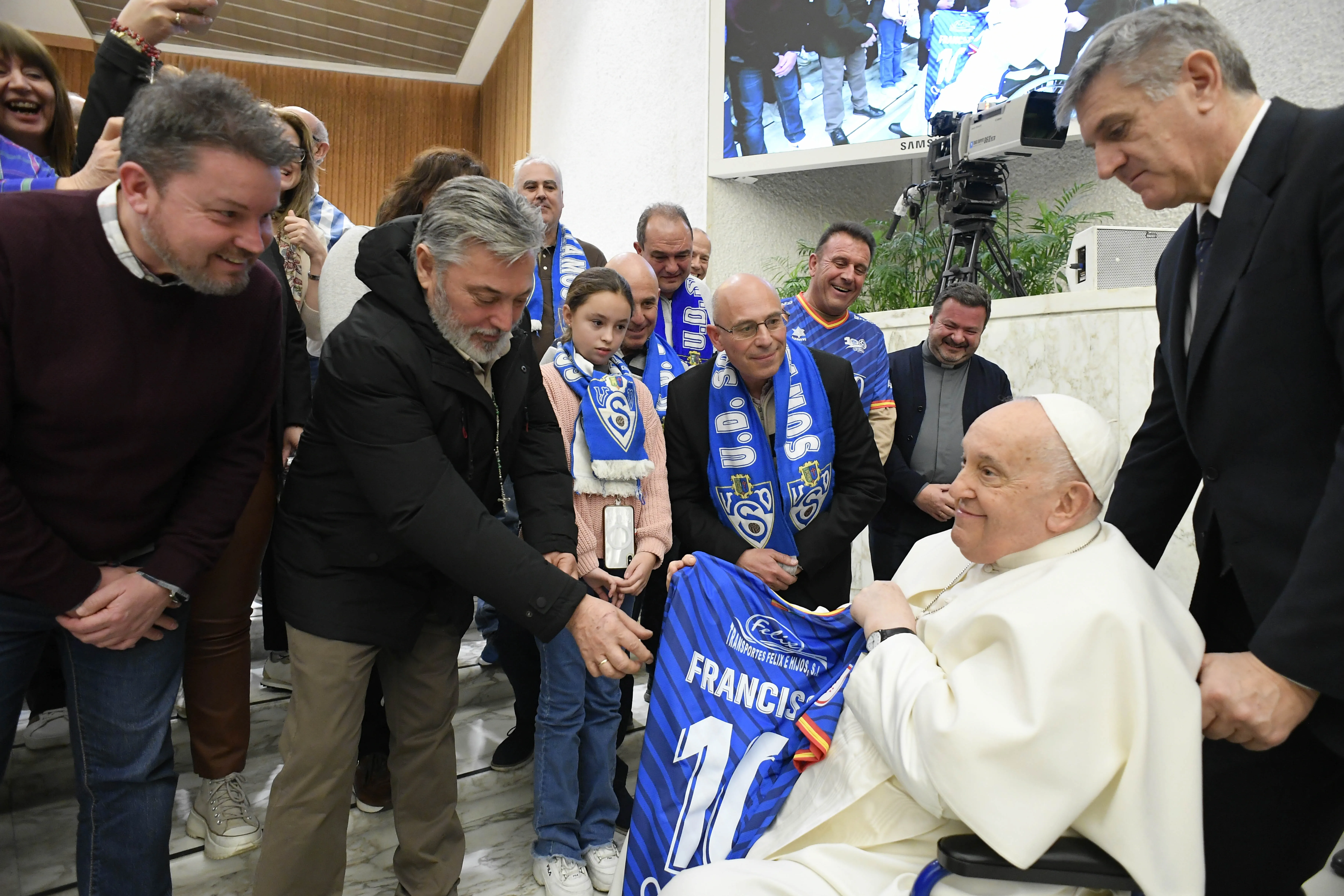Pope Francis: Avarice is a ‘Sickness of the Heart, Not of the Wallet’
At the end of the general audience the Holy Father reminded the faithful that Saturday, Jan. 27, is the International Day of Commemoration in Memory of the Victims of the Holocaust.

During his general audience on Wednesday, Pope Francis focused on the vice of avarice, or greed, noting that the preoccupation with the accumulation of material goods reflects a greater “compulsive hoarding and pathological accumulation.”
“It is not a sin that regards only people with large assets but rather a transversal vice, which often has nothing to do with the bank balance. It is a sickness of the heart, not of the wallet,” the Pope said to the faithful gathered in the Paul VI Audience Hall.
The Pope cited the example of the Desert Fathers — some of the earliest Christian hermits — who renounced their “enormous inheritances” yet who still “in the solitude of their cells clung to objects of little value. Those objects became for them a sort of fetish from which they could not detach themselves.”
The “attachment to small things” assumes a totalizing effect whereby it “takes away freedom,” Francis continued.
While it can give a sense of security, however fragile it may be, the pope noted the accumulation of these goods often becomes an inverted process. He observed that “we may be the masters of the goods we possess, but often the opposite happens: They eventually take possession of us.”
“Some rich men are no longer free, they no longer even have the time to rest, they have to look over their shoulder because the accumulation of goods also demands their safekeeping. They are always anxious, because a patrimony is built with a great deal of sweat but can disappear in a moment,” Francis added.
Highlighting the “drastic” monastic example of the “meditation on death” as a countermeasure to “heal from this disease,” Francis observed that these meditations highlight the futility of a hyper-fixation on material goods while also revealing its root cause: “It is an attempt to exorcize the fear of death, it seeks securities that in reality crumble the very moment we hold them in our hand.”
Death, the Pope continued, is a stark reminder of the “senselessness of this vice” as it showcases that “we cannot carry the goods with us!”
To further develop this point, the pope turned the Sermon on the Mount to reflect on the importance Jesus placed not on temporal goods and ephemeral pleasures but on the promise of eternal life.
“Do not lay up for yourselves treasures on earth, where moth and rust consume and where thieves break in and steal; instead lay up for yourselves treasures in heaven, where neither moth nor rust destroys, and where thieves do not break in or steal,” the Pope said, quoting from the Gospel of Matthew.
At the end of the general audience the Holy Father reminded the faithful that Saturday, Jan. 27, is the International Day of Commemoration in Memory of the Victims of the Holocaust.
“The memory and condemnation of that horrible extermination of millions of Jewish people and people of other faiths, which occurred in the first half of the last century, helps everyone to not forget that the logic of hatred and violence can never be justified, because they deny our very humanity,” the Pope said.
Imploring that “war itself is a denial of humanity,” the pope renewed his call to pray for peace amid the ongoing conflicts in the Middle East and Ukraine.
“Let us not get tired of praying for peace, for conflicts to end, for weapons to stop and for exhausted populations to be helped.”
“I pray for the victims and their loved ones, and I implore everyone, especially those with political responsibility, to protect human life by putting an end to wars. Let’s not forget: War is always a defeat, always. The only ones to win are the arms manufacturers.”
- Keywords:
- avarice
- sickness
- greed
- pope francis general audience


















